As more consumers grow environmentally conscious, the pressure on businesses to be more sustainable and socially responsible is mounting. As a business owner, you can employ sustainable business practices to be at the forefront of change.
In this guide, we will look at some of the the best sustainability initiatives you can use. From improving energy-efficient operations to educating your employees, each practice is a stepping stone toward your company’s greener future.
By the end of this read, you will learn strategies to reduce your carbon footprint, appeal to the growing eco-conscious consumer base, gain a competitive edge, and more importantly, help save the planet.
10 Must-Know Sustainable Business Practices
Whether you are a new entrepreneur or a seasoned business leader, leverage these 10 sustainable solutions to reduce your negative environmental impact. They will shape your business to be part of the green economy.
1. Embrace Remote Work Or A Hybrid Business Model

Working remotely or in a hybrid setting benefits employees and simultaneously enhances your company's sustainability. Remote work reduces the need for daily drives to work.
What does that mean? You cut down on fuel consumption and lower carbon emissions. Thus, this business model is not just a workplace evolution, it is a green revolution for your business strategy.
To employ this model, start with crafting an effective remote or hybrid work policy. For instance, you can determine which roles are suitable for remote work and which might need a hybrid approach. Then, outline the following:
- Settle expected work hours.
- Schedule overlapping times for collaboration and meetings.
- Set a schedule for when the employees are expected in the office.
Also, define your preferred communication channels: Slack or Google Chat. Plus, remember to include response time expectations to encourage open communication and team cohesion.
Encourage a healthy work-life balance and emphasize output over hours logged. With this, you can help reduce unnecessary energy usage in your office spaces or at their homes.
2. Leverage Sustainable Packaging

Every package sent out reflects your brand's commitment to the environment. Replace traditional, often harmful materials with eco-friendly alternatives. Think about it: biodegradable materials equal less waste and a smaller carbon footprint.
When you choose sustainable packaging, you are saying no to excess packaging, single-use plastic, and needless plastic waste.
Let’s take a small online shop, for instance. During the holiday rush, eCommerce retail shops are on-demand and are sending out countless packages. If each of those is wrapped in plastic or non-recyclable materials, that is a mountain of waste ending up in landfills.
Not something to be proud of, right?
However, when you opt for biodegradable materials, it reduces the negative environmental impact. To make the switch, audit your current packaging and identify areas where you can cut down on materials or replace them with greener options.
Going back to our example, these are ways an online retail shop can go green:
- Offer eco-friendly products.
- Use soy-based inks for order labels.
- Use recycled paper for wrapping gifts.
- Get sturdy, reusable cardboard boxes.
- Leverage biodegradable packing peanuts instead of Styrofoam.
- If a customer orders multiple items, consolidate them into one package to reduce the number of shipments.
Besides reducing waste, this presents an opportunity for carbon offset. It also sets a standard for your industry and more importantly, contributes to a larger environmental goal.
3. Buy Green Office Equipment
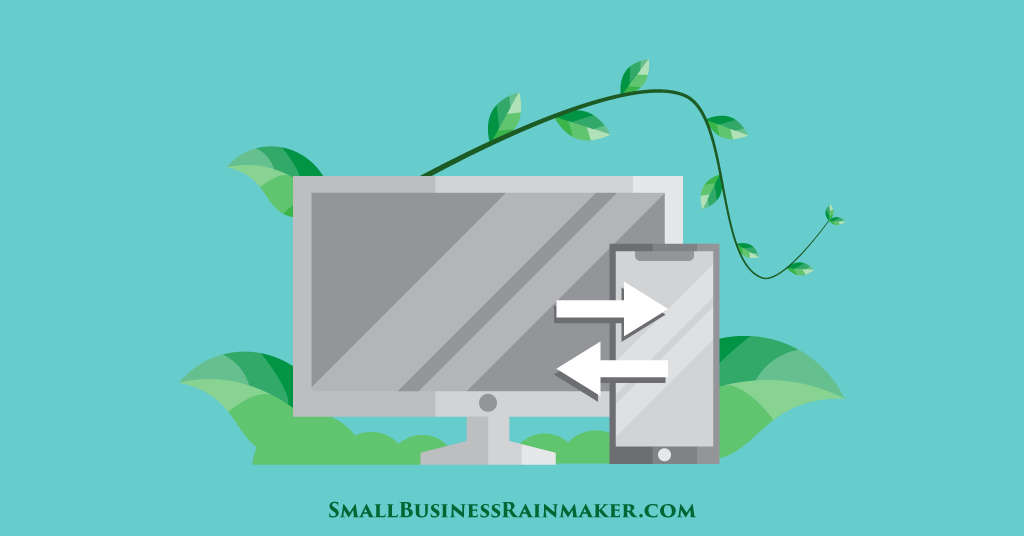
Choose office items made from recycled materials, have a longer lifespan, or are produced through eco-friendly processes. With this sustainable strategy, you will have eco-friendly products that can lower your utility bills.
For example, let’s say you are setting up your new office. You can opt for energy-efficient or TCO computer models.
If a laptop has a TCO certification, it means it met comprehensive sustainability criteria. But do not get the wrong idea, these computer models offer great performance like Lenovo’s ThinkPad L Series.
For your office furniture, buy desks and chairs made from recycled materials. Even small items like refillable pens, biodegradable cleaners, and even recycled paper products contribute significantly.
In addition, you should switch to efficient LED lighting and use smart thermostats to reduce energy consumption. From small office supplies to bigger equipment, these changes all contribute to making a green environment.
4. Educate Your Employees
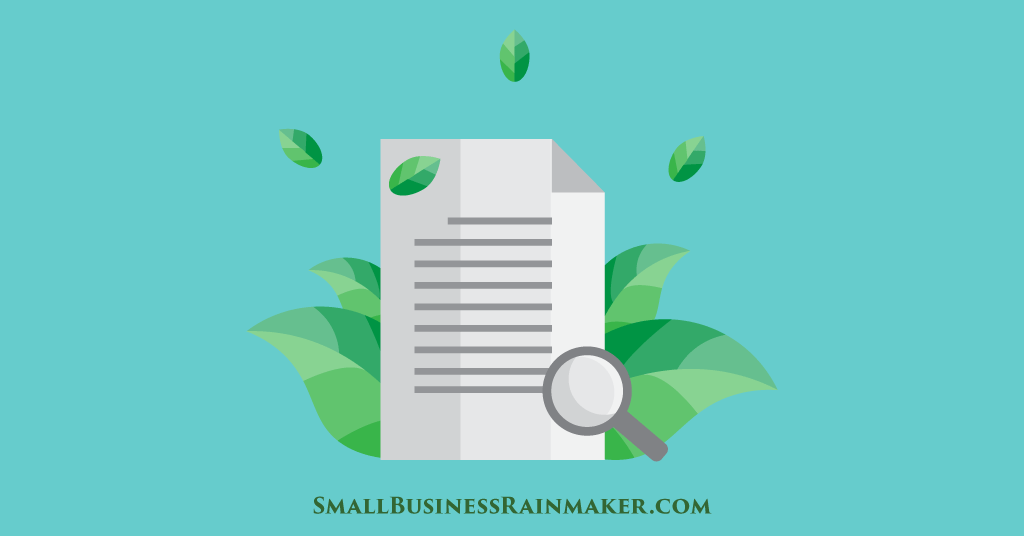
No, this is not just merely telling them what to do. You need to instill a deep understanding and commitment to sustainability in your company culture. When your employees are informed and engaged, they can actively contribute to reducing your business’s environmental footprint.
How do you do this effectively?
Integrate sustainability into your training programs. This is where your HR team comes into play because they can develop sustainable programs that maximize talent engagement and make sure they align with your company's values.
For example, if you aim to reduce water consumption, organize workshops explaining excessive water usage’s negative impact. Plus, give practical ways to conserve water like immediately reporting leaks and turning off taps while soaping hands.
Moreover, if you have the resources, have your HR team invite sustainability experts as guest speakers. Their experiences and insights can inspire your employees and provide new perspectives on how to be more eco-friendly in their daily work.
To further instill green business practices into their mindset, initiate sustainability competitions like who used the least paper this month. With this, you make the process fun and foster community around your green goals.
This approach’s long-term benefits are manifold. You will see a reduction in your company’s environmental impact and an increase in employee morale. Your staff can feel proud to be a part of a company with concrete initiatives.
5. Improve Energy Efficiency
Switch to green electricity usage to cut down on energy costs and add long-term value to your business sustainability efforts. How can you be energy-efficient?
Start with the basics like switching to LED lighting. They consume 90% less power and last 25% longer than traditional light bulbs. You should also have employee policies like turning off lights when they leave.
However, go beyond that and think bigger if you have the financial resources. Consider renewable energy sources like solar panels. They offer clean energy solutions to significantly reduce reliance on non-renewable energy and add long-term value to your business.
To have an effective solar plan, it is best to hire an engineer expert in solar panels. They can assess your company’s energy needs, recommend the best solutions, and guarantee that the installation of solar panels is optimized for maximum efficiency.
With this, you can reduce your reliance on traditional electrical grids and cut down on energy bills. This can be a hefty investment, but it pays off in both the short and long term to transform you into a sustainable business.
6. Create A Recycling Program
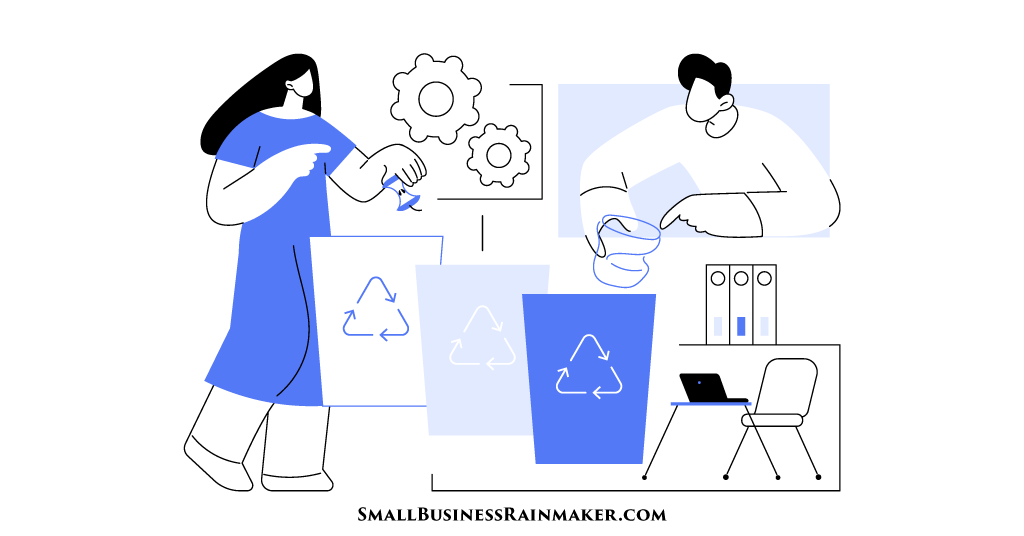
Integrate eco-friendly practices into your business process to transform waste and significantly reduce resource consumption. Not to mention, a recycling program reduces pollution, lessens waste disposal fees, and saves energy.
To start recycling in your company, conduct a waste audit. This means you should identify what needs to be completely discarded and what could be recycled.
Then, set up and label recycling bins for different materials, including plastics, paper, and metals. Educate your team about what goes where and why it matters to make this work.
For example, let’s say you run a local coffee shop. You can recycle your coffee grounds, paper cups, and plastic lids. To make the process smoother, partner with your local recycling centers or composting services.
You should also offer discounts to your customers to encourage them to use their reusable or recycled tumblers and cups. With this, you are hitting two birds with one stone. You get the attention of the eco-conscious consumers and achieve your sustainable goals.
What about your old computer and other electronics? Contact a recycling center that specializes in electronic waste for safe disposal. Do not throw e-waste in regular trash since they have harmful materials. If you cannot find one, some manufacturers and retailers offer take-back programs like BestBuy.
7. Source Materials Ethically
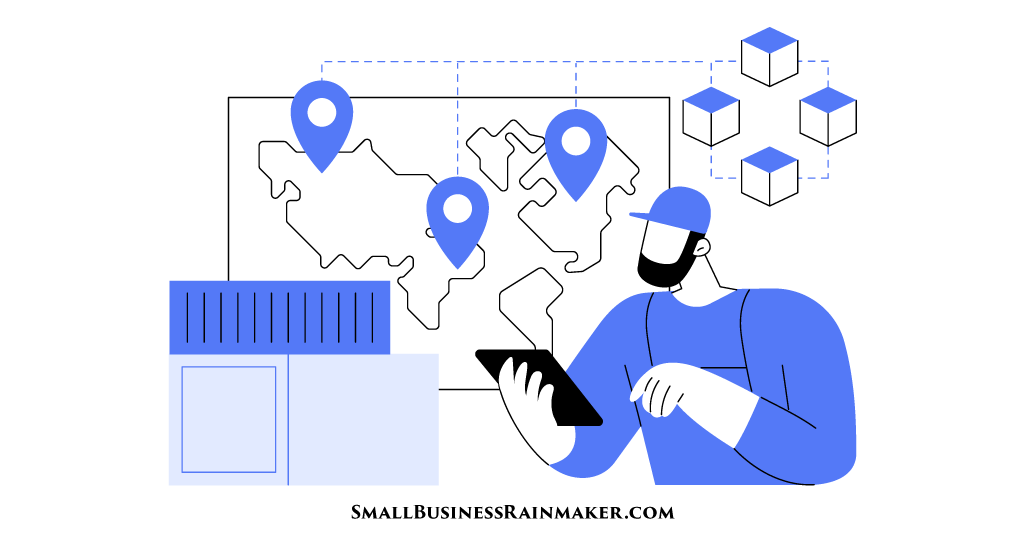
Choose suppliers who prioritize environmental responsibility to reduce your ecological footprint, support fair practices, and meet customer expectations. Think of this like picking the good apples from the tree.
For instance, let’s say you own a supplement company. Choose an environmentally responsible supplier like Vivion. This company shows commitment to eco-friendly alternatives and sustainable methods. This helps you guarantee that the ingredients for your supplements are harvested responsibly, without depleting natural resources or harming ecosystems.
How do you make this shift? Research about the suppliers. Check their website for any mention of their practices.
Additionally, look for certifications that indicate sustainable practices. Vivion, for instance, is a member of the Alliance For Chemical Distribution (ACD). It is an organization that helps make sure that chemical distributors move their products safely, sustainably, and responsibly.
But more than that, set a meeting with your potential suppliers to ask about their production methods, waste management, packaging, and labor conditions. With this, you can dig deeper into the companies instead of simply going by their website.
Lastly, keep open communication between you and your suppliers. Consistently check in on them to get updates about their processes.
8. Go Green In Marketing

Integrate sustainable strategies into your promotional efforts to make sure the way you sell your products aligns with your commitment to the environment. How do you practice this?
Monitor your marketing campaign conversion rates and work to constantly improve them. Better conversion means you get more customers with fewer resources.
In your search for better conversions, it's good practice to use an omni-channel (cross-channel) approach that experiments with both digital and offline methods.
In digital marketing channels, you can boost your green marketing efforts through an effective SEO strategy. With strategic positioning, you drive targeted traffic to your website and establish your commitment to the environment for a broader audience to see. In this way, SEO subtly fosters a strong brand identity that is synonymous with eco-consciousness and sustainability. In your content planning, integrate sustainability topics and keywords to connect your company to eco-conscious consumers.
In offline channels such as direct mail, work with print service providers who use sustainable printing practices and materials. This includes using paper sourced from certified green suppliers. It means using recycled paper, board, and packaging materials. It means using vegetable based inks and non-toxic printing supplies.
In both digital and offline channels, sustainability means having good list hygiene. Keep mailing lists and email lists updated and free of outdated information to avoid waste.
Another step to greener practices is to review your marketing merchandise’s sustainability. Use eco-friendly promotional items, like reusable water bottles or recycled tote bags, over disposable or non-recyclable products.
9. Partner With Non-Profit Organizations

Joining forces with organizations dedicated to making a positive impact helps amplify your environmental initiatives and increase your community engagement. It strengthens your brand's reputation as a socially responsible entity.
To forge these partnerships, identify non-profits whose mission aligns with your company’s ethos. For instance, if you have an outdoor gear company, partner with an organization that works in wildlife conservation or outdoor education.
If you are all about reducing waste, look for non-profits focused on recycling and pollution reduction. Reach out to them and propose collaboration ideas like hosting events to bring awareness about social responsibility.
Additionally, do not forget to present how you can mutually benefit from the partnership. You can, for example, encourage your employees to volunteer in their workshops, while your business can donate used but still good-quality equipment.
With this practice, your impact can extend beyond your business operations to broader societal and environmental contributions. You can help build a community that cares, all while building a more positive and impactful brand image.
10. Conduct Regular Sustainability Audits

Consider this as a routine check-up on your company’s sustainability status and environmental progress. Identify operational areas where you can lower your ecological footprint and set achievable goals to become more sustainable.
Consider that you are a digestive supplement distributor wanting to improve your eco-friendly initiatives. Here is how you can conduct your audit:
|
What To Review |
What To Ask |
What To Do |
|
Ingredients |
Are they sourced sustainably and safely? |
Review if your suppliers use eco-friendly methods. If they do not, check for more sustainable alternatives. |
|
Lab Operations |
Are they handling chemicals sustainably? |
Evaluate ways to reduce water usage and handle chemical waste disposal sustainably in the testing processes. |
|
Energy Consumption |
Are your warehouses, labs, and offices energy-efficient? |
Identify more opportunities to switch to renewable energy sources or more energy-efficient equipment. |
|
Packaging |
What materials are they made of? |
Look into recycled, biodegradable, and compostable options. Make sure your customers can reuse your packaging bags. |
|
Distribution Network |
How are your supplements transported? |
Assess how much carbon footprint you have with your current transportation methods. Check if you can switch to a carrier that uses electric vehicles. |
|
Waste Management |
How much waste do you produce? |
Aim to reduce waste and increase recycling rates. Additionally, make sure you discard supplements safely. |
Once you are done with your review, it is time to set SMART goals. Let’s say you are expanding your supplement inventory, your goal can be:
- Reduce the warehouses’ energy consumption by 20% over the next 12 months as the inventory expands. This will be achieved through more energy-efficient lighting and sustainable climate control systems implementation.
If you want to transition toward sustainable packaging, here is what your goal can be:
- Accelerate the transition to sustainable packaging by adopting 40% biodegradable or recycled materials for supplement packaging within the next 8 months."
Of course, these are just some ideas. The goals would depend on many factors, including your financial resources.
When you conduct regular sustainability audits, you are doing more than complying. You are committing to improving your business processes to become eco-friendly.
Conclusion
As environmental issues grow, the desire to help solve them becomes even bigger for many consumers and businesses alike. Now is the time to start taking action to do your part. With these sustainable business practices, you can pave the way for a better future.
From remote work to more substantial changes like reassessing your supplier, these tactics go beyond mere trends as they will help reduce your ecological footprint. While it may seem daunting to employ these, the long-term benefits far outweigh the initial effort.
However, being sustainable is not a one-time task. It requires continuous improvement, so be sure to assess and refine your sustainability strategies regularly. Thus, you can guarantee they align with evolving environmental standards and your business objectives.
Are you ready to move forward?
Choose Small Business Rainmaker to help you incorporate sustainability using content such as videos, newsletters, and social media. Leverage those assets to demonstrate your commitment to developing your small business into a sustainability leader in your industry. Get in touch with them here.
Burkhard Berger is the founder of Novum™. He helps innovative B2B companies implement revenue-driven SEO strategies to scale their organic traffic to 1,000,000+ visitors per month. Curious about what your true traffic potential is?







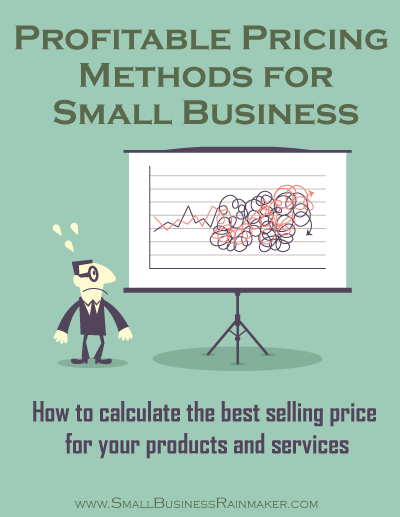

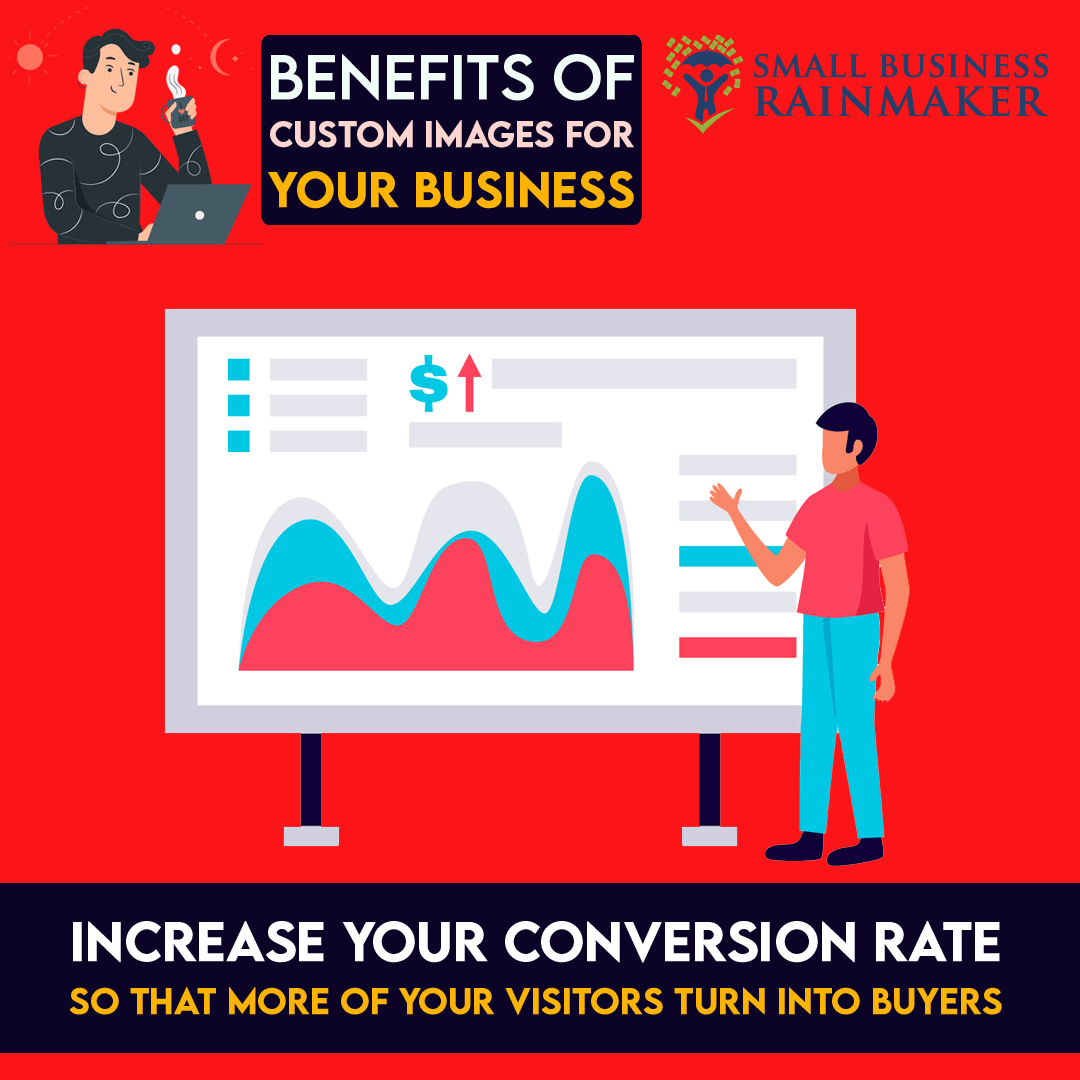

Leave a comment